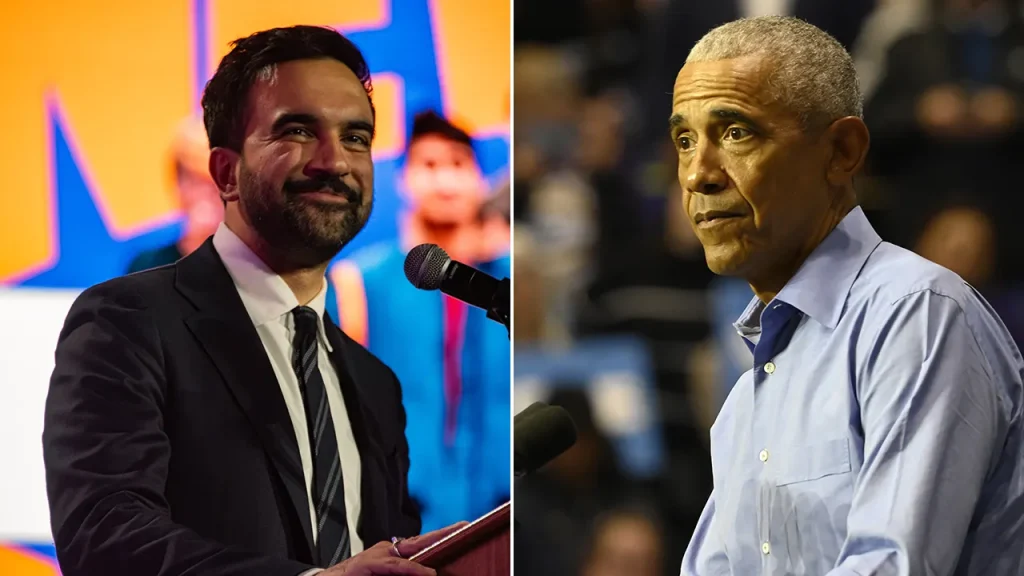Obama Reaches Out to NYC Mayoral Frontrunner Mamdani Days Before Election
In a significant political development, former President Barack Obama reached out to New York City mayoral frontrunner Zohran Mamdani just three days before the upcoming election. During their 30-minute private conversation, Obama reportedly expressed admiration for Mamdani’s campaign, telling the Democratic socialist candidate that his campaign has been “impressive to watch.” This marks the second call between the two since Mamdani won the Democratic primary, with Obama offering himself as a “sounding board” for the 64-year-old mayoral hopeful. While not an official endorsement—as Obama has previously vowed not to interfere in municipal races—the call represents a significant gesture of support from one of the Democratic Party’s most influential figures.
Mamdani’s campaign welcomed the former president’s call, with spokesperson Dora Pekec telling Fox News Digital that the candidate “appreciated President Obama’s words of support and their conversation on the importance of bringing a new kind of politics to our city.” The timing of this conversation is particularly noteworthy as Mamdani maintains his lead in the polls against formidable opponents: former New York Governor Andrew Cuomo, running as an Independent after losing to Mamdani in the Democratic primary, and Republican candidate Curtis Sliwa, whose campaign declined to comment on Obama’s call. The conversation highlights the high-stakes nature of this mayoral race, which has captured national attention due to Mamdani’s progressive platform.
On the same day as his call with Mamdani, Obama was actively campaigning for Democratic gubernatorial candidates in other states, supporting Abigail Spanberger in Virginia and Mikie Sherrill in New Jersey, both of whom are engaged in competitive races. This simultaneous outreach demonstrates Obama’s continued influence within the Democratic Party and his strategic involvement in key races across different levels of government. His decision to reach out to Mamdani while campaigning for gubernatorial candidates suggests he views the New York City mayoral race as having particular significance in the broader political landscape.
The call takes on additional meaning within the context of Democratic Party dynamics, as some establishment Democrats, including New York Senator Chuck Schumer, have maintained distance from the progressive Mamdani. This illustrates the ongoing tension within the Democratic Party between its progressive and moderate wings. Obama’s outreach could be interpreted as an attempt to bridge this divide or at least signal that progressive candidates like Mamdani deserve consideration and respect from all corners of the party. The former president’s intervention comes at a critical moment for Mamdani, potentially bolstering his campaign in its final days.
New York City’s mayoral election has become a fascinating political battleground, featuring distinct visions for the city’s future. Mamdani represents a progressive approach with democratic socialist policies, while Cuomo offers himself as a seasoned political operator with executive experience, and Sliwa presents a Republican alternative. The involvement of high-profile figures like Obama highlights the national significance of this local race, which could indicate broader political trends. As the race enters its final days, each candidate is making their closing arguments to voters, with Mamdani now having the implicit backing of a former president.
With Election Day approaching rapidly, the call between Obama and Mamdani may influence undecided voters and energize Mamdani’s base. Political observers will be watching closely to see if this high-profile conversation translates into tangible electoral benefits. Regardless of the outcome, Obama’s involvement underscores the importance of municipal elections in shaping national politics and policy directions. As New Yorkers prepare to select their next mayor, the race continues to draw attention not just for its local implications but for what it might signal about the future direction of Democratic politics nationwide.


